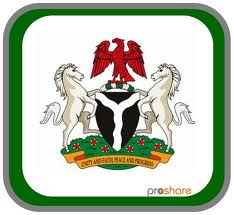The Central Bank of Nigeria has announced a programme for the change of & design of four of the eight existing denominations of the legal tender. The Naira notes affected are N100, N200, N500 and N1,000 denominations.
The new currency notes will become legal tender as from December 15, 2022. There will be concurrent circulation of the old and new notes for a period of 45 days up until January 31, 2022. The existing notes will cease to be legal tender as from that date.
The Central bank in its circular expressed concerns about some challenges to currency management in Nigeria which include but are not limited to
(a) Currency hoarding by the public
(b) Counterfeiting of the currency
(c) Short supply of clean notes
(d) Prevalence of currency mutilation
The macroeconomic and monetary stability effects are relatively neutral. This is because the aggregate supply of money will not change, and neither will the gross domestic product (output) be directly affected.
Many analysts were confounded by the move in the context of the following questions
(a) Why the change i.e. what is the goal?
(b) Why at this time?
(c) What will be the impact on inflation?
(d) What will be the impact on the value of the Naira in the forex market?
The answer to the first question can be seen in the context of precedent. Nigeria last changed its currency notes fully in 1984. It was done in a period of 21 days, the land borders were fully closed and inbound flights into the country were scrutinized.
The rationale was that politicians in the 2nd Republic had plundered the National Treasury and the military government wanted to ensure that looted funds were trapped in the old notes and that the government could sanitise the country in its war against corruption and indiscipline. But, that was 38 years ago. The value of the Naira in the forex markets was approximately $1/N1. In other words, there was parity between the U.S. dollar and the Nigerian Naira at that time. A lot of water has since gone under the bridge and the world is not the same as today. The U.K. Prime Minister at that time was Margaret Thatcher and the U.S. President was Ronald Reagan. There was no European Union and there was then West and East Germany.
(b) Why change the notes at this time?? Is the timing curious? It depends on the viewer’s perspective. The total money supply in 1984 was minuscule compared to today. So changing the entire currency in 21 days with the borders closed was manageable at that time with minimal disruption to business and economic activity. The current initiative is happening in December, the yuletide season and the legal tender will change twenty-three days before a monumental presidential election.
Many political pundits could read meanings into what should ordinarily be a purely economic policy issue if the new notes are counterfeited by political saboteurs, it could easily destabilize the country. Even though this is a far-fetched notion.
(c) What will be the economic impact on inflation and GDP (output)? The change in the design of the currency notes will have no impact on the level of prices in the economy. Because inflation is defined in generic terms as a persistent increase in the general level of prices. This typically results from too much money chasing too few goods. Therefore, since the economic value of the currency notes has not increased money supply, it will have no effect whatsoever on the general level of prices. However, to the extent that economic agents especially market women in the middle of December will be constrained to exchange goods for a currency that will cease to be legal tender in 45 days. It could discourage them from accepting the old notes and therefore will reduce aggregate demand and affect the supply of goods. In other words, it could lead to a fall in GDP and output. It could inadvertently lead to the dollarization of the domestic economy or a sharp increase in electronic payments and settlements of transactions.
A cursory look at the money supply components reveals a very interesting trend. The money supply is in 4 broad categories
M1 = Cash in circulation (Demand deposits)
M2 = M1 + Time deposits
M3 = M2 + Credit in the Banking system
M4 = M3 + Pseudo money
It is under M1 that currency in circulation falls.
The total money supply in Nigeria is approximately N49trn. Of this amount, only 8.50% is the currency in circulation. We also observe that 10 years ago, the currency in circulation (if accurate) was about the same (3.2trn).
Therefore currency in circulation 10 years ago was only 9% of the total money supply whilst today it is 6.6%. Also, electronic payments were a fraction of what it is today.
Today 90% of total transactions are electronically settled and the velocity of circulation is infinitely higher than what it was back then. Another factor to be considered is the use of cheques.
New regulations do not allow you to issue any cheque above N10 million and there is a cashless policy in Nigeria. This means that the potency of cash as an economic destabilizing variable is limited. Therefore, the supposed importance of cash in circulation in Nigeria is greatly exaggerated.
(d) What will be the impact on the value of the Naira in the forex market? Theoretically, it should have no effect whatsoever. But forex markets are usually a subject of panic and speculation. The first reaction to the new regulations is likely to be a flight to safety by investors, for example, anytime there is a major global market shakeout, investors scramble for gold and dump the U.S. dollar. So we expect some initial speculation against the Naira but this should be short-lived. The Naira traded at N770/$ today but should settle at its true market value in the days ahead. In times of uncertainty, investors, speculators and manufacturers will prefer to be long in dollars and short in domestic currencies.
 Lagos, NG • GMT +1
Lagos, NG • GMT +1











 859 views
859 views










 Sponsored Ad
Sponsored Ad
 Advertise with Us
Advertise with Us









